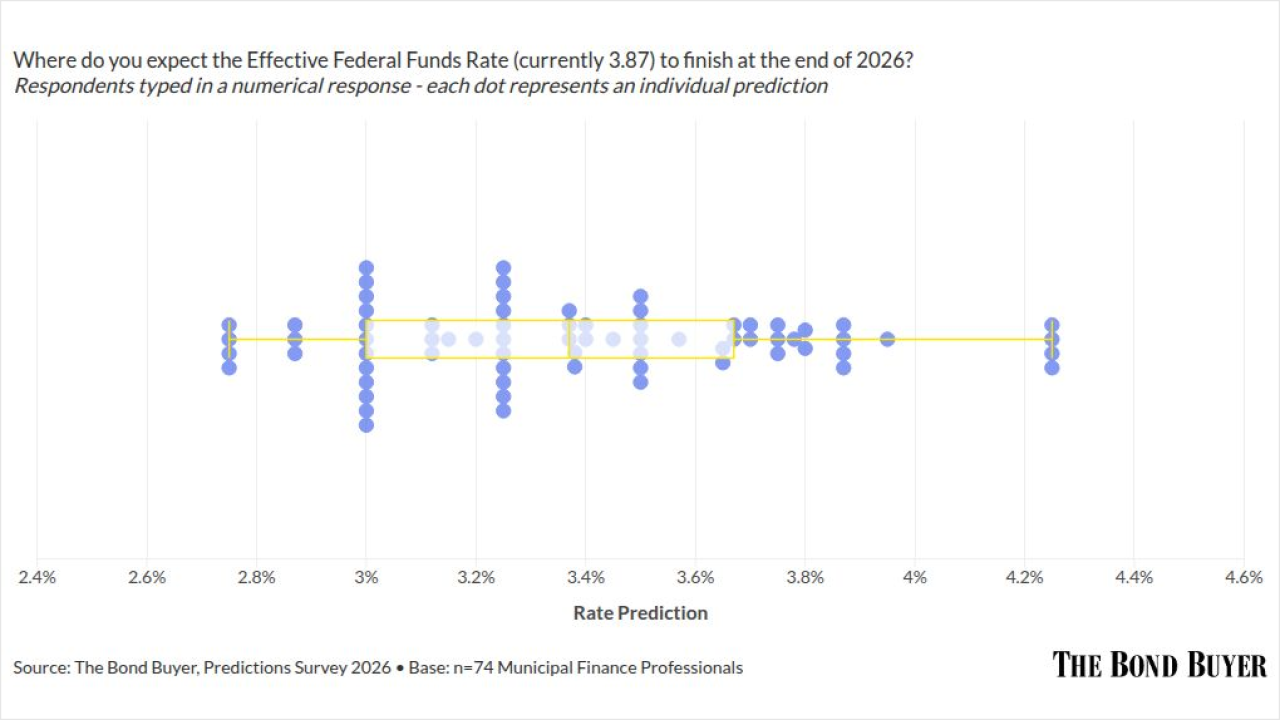Texas laws that bar investment banks from underwriting state and local government debt if their policies are deemed harmful to the fossil fuel or firearms industries will have negative consequences for taxpayers and the business climate, according to a study released last week by a state business group.
The laws, which apply to state and local government contracts worth $100,000 or more and require written verification of compliance from investment banks that they do not "boycott" or "discriminate" against the two industries, have pared the ranks of big bank underwriters operating in Texas due to outright bans or internal decisions to pull away from that market.
While average underwriting spreads per $1,000 of bonds since Senate Bills 13 and 19 took effect in September 2021 dipped for state debt issued over the last two fiscal years, they rose dramatically for local bonds, implying $270.4 million in excess costs, according to the study.
"These funds are no longer available for the basic functions of government; when run through a model of the Texas economy, this translates to $668.7 million in lost economic activity, value-added of $342.6 million, $180.7 million in annual earnings, 3,034 full-time, permanent jobs, and $37.1 million in state and local tax revenue," the study said.
Local bond issuance, particularly by public school districts, was a big driver behind Texas becoming 2023's
Stephanie Matthews, executive director of TABCCF, the research arm of the Texas Association of Business, said the state has succeeded in being a magnet for companies.
"However, as this latest study shows, certain laws can have a negative impact on businesses and place additional, unnecessary burdens on our state's taxpayers," she said in a statement. "It is important for our state's policymakers to understand the implications of these laws in order to ensure Texas remains the top U.S. state for business."
Whether Republican politicians leading the Lone Star State's government are willing to ease their anti-environmental, social, and governance stance is uncertain.
"I would think that normally (or at least in the past) a report like this would/should give pause to a Republican administration that supported legislation that leads to higher government costs by reducing the amount of competition in government procurement," Martin Luby, associate public affairs professor at the University of Texas at Austin, said in an email. "However, the policy preferences of the Republican Party have shifted, so perhaps they are willing to accept higher borrowing costs in exchange for making a statement on ESG."
As a
Bank of America, JP Morgan Chase, Morgan Stanley, RBC Capital Markets, and Wells Fargo remain under a review launched by Texas Attorney General Ken Paxton's Office in October over their involvement with
"This is a study that was commissioned with an answer already in mind," Glenn Hegar, the state comptroller, said in a statement. "It is political theater dressed up as economics that is light on details and methodology and heavy on rhetoric. My goal in enforcing Texas' law is to safeguard the Texas economy, ensure Texas tax dollars are not spent undermining our state's fiscal health, and provide some transparency for an investment trend that, to this day, cannot be accurately defined."
Hegar, who was directed by the fossil fuel-related law to
Paxton's office, which ousted Barclays and Citigroup, did not respond to a request for comment. A January statement from Paxton said his office "will continue to vigorously enforce our laws that prevent taxpayer funds from going to companies whose ESG policies harm Texans or key Texas industries."
The study showed the average underwriting spread for local government bonds climbed from $5.61 in fiscal 2021 to $10.94 in fiscal 2022 and to $13.12 in fiscal 2023. State bonds' average spread of $3.68 in fiscal 2021 slipped to $3.41 in fiscal 2022 and rose slightly to $3.64 in fiscal 2023.
Nationally, the average underwriting
Academics questioned the magnitude of the jump in Texas local bond spreads.
Luby noted the study was not peer reviewed, adding he would want to examine the data behind the increase.

"If accurate, I guess it suggests that underwriters were able to extract more rent out of local governments than the state government from reduced competition in terms of underwriter spreads, but this sort of increase seems rather large to me on its face," he said.
Justin Marlowe, research professor at the University of Chicago's Harris School of Public Policy, said "lots of other factors" could have increased the spreads, particularly Federal Reserve interest rate hikes that began in March 2022.
"I'd like to see a more comprehensive econometric analysis before attributing such a big change in spreads entirely to the anti-ESG measures," he said in an email. "I'm sure there's an effect, but I doubt it's as large as this study suggests."
As Houston considered a $2.55 billion, bond-financed renovation of a George Bush Intercontinental Airport terminal last year, then-Houston Controller Chris Brown
"What that potentially does is increase issuance costs as a result of decreased competition and it also potentially increases our risk," he told The Bond Buyer in November, pointing to the need for banks with substantial excess net capital to handle multi-billion-dollar muni deals and, in the case of taxable debt, have the ability to sell it to prospective overseas buyers.
The shrinking pool of eligible banks could also impact the cost of liquidity facilities for local governments. Houston, which initially finances capital projects through commercial paper backed by a bank line of credit, is anticipating costs for those facilities to rise, Finance Director Melissa Dubowki
Other states have followed Texas' lead and enacted similar laws that led to underwriter bans. The Oklahoma Treasurer Office's
This session, Oklahoma lawmakers are weighing bills to address concerns about the law. A Firearm Industry Discrimination Elimination Act was back for another try in Oklahoma, but failed to advance by a legislative deadline.
The bill
An effort in Arizona to avoid another gubernatorial veto of a bill blacklisting insufficiently pro-firearm banks by placing a proposition on the ballot passed the Senate in a 16-13 vote Jan. 31 and is making its way through the House.
Senate
Democratic Gov. Katie Hobbs
West Virginia Treasurer Riley Moore last month





